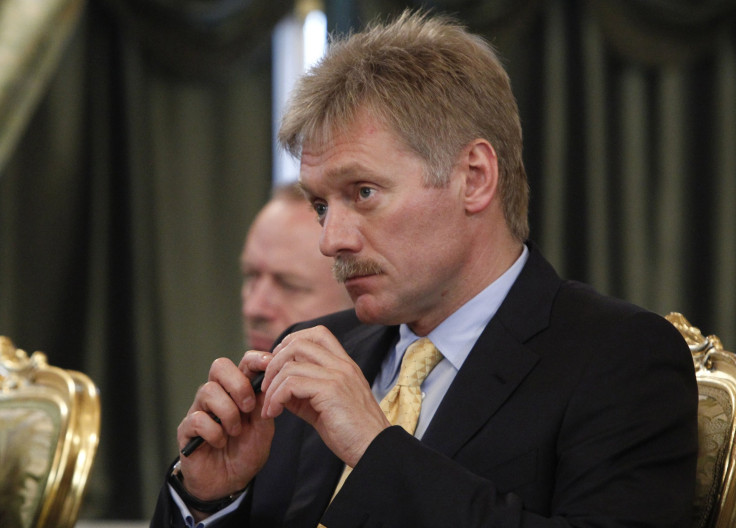Amid Ukraine Tension, Russia Condemns 'Confrontational' US Military Strategy

The worn relationship between Russia and the United States reportedly took another step backward this week. The Kremlin said Thursday that a recently announced United States military strategy was confrontational and would further strain relations already tense over the conflict in Ukraine, reported Reuters.
The Pentagon's new strategy, released Wednesday, said Russia had shown it was willing to use force to reach its goals and did not respect the sovereignty of its neighbors. The document specifically mentioned Russia alongside Iran and North Korea as threats to global peace, reported Defense News.
Dmitry Peskov, the Kremlin's spokesman, expressed his displeasure concerning the strategy to reporters in a conference call, saying it suggested a "confrontational attitude, devoid of any objectivity towards our country," according to Reuters. "Of course this will hardly contribute to attempts to steer bilateral relations in the direction of normalization," he said.
Relations between Russia and the United States have frayed over the ongoing conflict in Eastern Ukraine between the Ukrainian government and pro-Russia separatists, in which some 6,400 military people and civilians have died. Western leaders and the Ukrainian government have suggested that Russia has been involved in the conflict by sending troops and arms, but the Kremlin has repeatedly denied any direct involvement.
The new military strategy from the U.S. suggested Russia has taken actions that have had a destabilizing effect. "Russia's military actions are undermining regional security directly and through proxy forces," it reads.
The strategy did not suggest that a war with a major power is on the horizon, but rather said that Russia, North Korea, Iran and perhaps China are a security concern. "None of these nations are believed to be seeking direct military conflict with the United States or our allies," the strategy reads. Later in the document, the strategy said that "today, the probability of U.S. involvement in interstate war with a major power is assessed to be low but growing."
A report on Wednesday suggested that the United States and Russia were working toward finding a way to restore normalcy to the strained relationship. Russian Foreign Minister Sergei Lavrov said that U.S. President Barack Obama had a “pragmatic” talk with Russian President Vladimir Putin, according to Bloomberg.
© Copyright IBTimes 2025. All rights reserved.





















